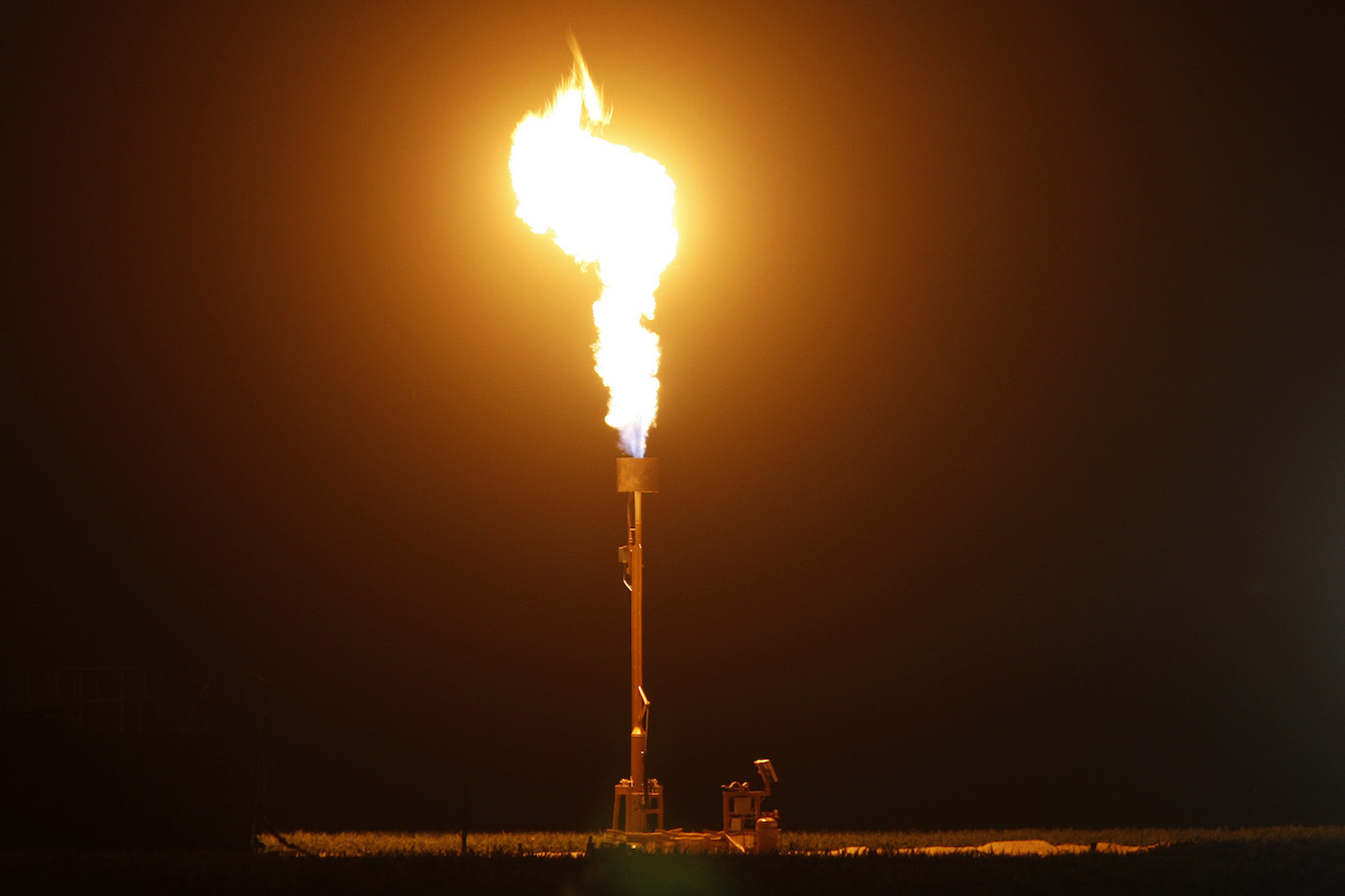As the NATO summit opened in Belgium on Wednesday, President Donald Trump quickly made headlines for publicly mocking Germany for building a new natural gas pipeline to Russia.
Ironically, Trump is right that the Germans should not be building this pipeline — but his reasoning is all wrong. Trump, who is heavily backed by the U.S. gas and oil industry, wants the Germans to get any new natural gas from America, not Russia.
But the real issue should be that the Germans, who have committed to deep cuts in their total greenhouse gas emissions, should not be getting more natural gas from either country.
While it’s long been asserted that natural gas could be a clean alternative to coal, and a “bridge fuel” to renewables, considerable research in recent years shows that natural gas is far more damaging to the climate than previously thought.
At issue is the Nord Stream 2 project — Germany’s plan to build a second 800-mile-long pipeline system beneath the Baltic Sea to get Russian gas. (Yes, Germany already has one gas pipeline system under the Baltic bringing Russian gas to Western Europe.)

“Germany is totally controlled by Russia, because they will getting between 60 and 70 percent of their energy from Russia and a new pipeline,” said Trump at the NATO summit’s opening photo op, while his chief of staff, John Kelly, visibly squirmed.
“And you tell me if that is appropriate, because I think it’s not, and I think it’s very bad thing for NATO, and I don’t think it should have happened, and I think we have to talk to Germany about it,” the president added.
What Trump, and the U.S. fossil fuel industry, want is for Germany to build a liquefied natural gas (LNG) terminal and import U.S. natural gas instead.
Germany, however, shouldn’t be spending billions of dollars on any new long-lasting infrastructure that will only serve to maintain its dependence on climate-destroying natural gas.
After all, the German government has set very ambitious greenhouse gas targets.

In order to just meet the 2030 target Germany committed to as part of the Paris climate agreement, in fact, the German government has said it needs to cut its energy sector carbon pollution in half from current levels.
Moreover, as the chart above shows, Germany has committed to keep reducing its greenhouse gas emissions sharply after 2030. So investing in fossil fuel infrastructure that lasts for decades is a clear misallocation of funds that would be better spent on long-lasting carbon-free energy sources.
And while it’s certainly true that Germany needs to keep shutting down its remaining coal plants, study after study makes clear that natural gas does not have a net climate benefit.
A key reason gas doesn’t have a net climate benefit is that natural gas is mostly methane (CH4), a super-potent greenhouse gas, which traps 86 times as much heat as CO2 over a 20-year period.
That’s why countless studies find that even a very small leakage rate of methane from the natural gas supply chain (production to delivery to combustion) can have a large climate impact — enough to gut the entire benefit of switching from coal-fired power to gas for a long, long time.
And that’s significant for Germany’s new pipeline, as Russia is notorious for having huge leaks in its natural gas supply chain. Studies from the U.S. Energy Department and Europe have shown this wipes out most, if not all, of natural gas’ climate benefit as a replacement for coal.
Studies also show that U.S. fracked gas is also far leakier than the industry has claimed. Moreover, it takes a great deal of energy to liquefy gas. So the extra greenhouse gas emissions from making and shipping LNG can equal 30 percent or more of combustion emissions, according to a major 2009 European Commission report from its Joint Research Centre, Liquefied Natural Gas for Europe — Some Important Issues for Consideration.
That means U.S. liquefied natural gas is probably about as bad as Russian gas from a climate perspective. If the Germans are serious about their Paris climate commitment and their government’s own greenhouse gas targets, then both a new Russian pipeline or a new LNG terminal is a dangerous misallocation of resources.
But, of course, that’s not an argument you’re ever going to hear from President Trump.


